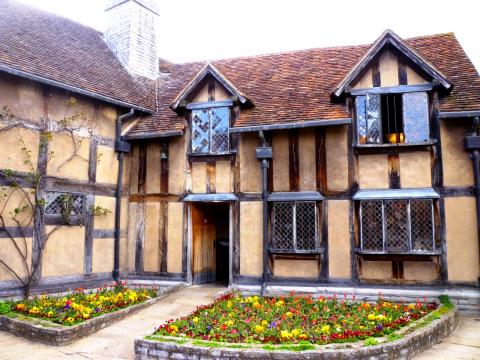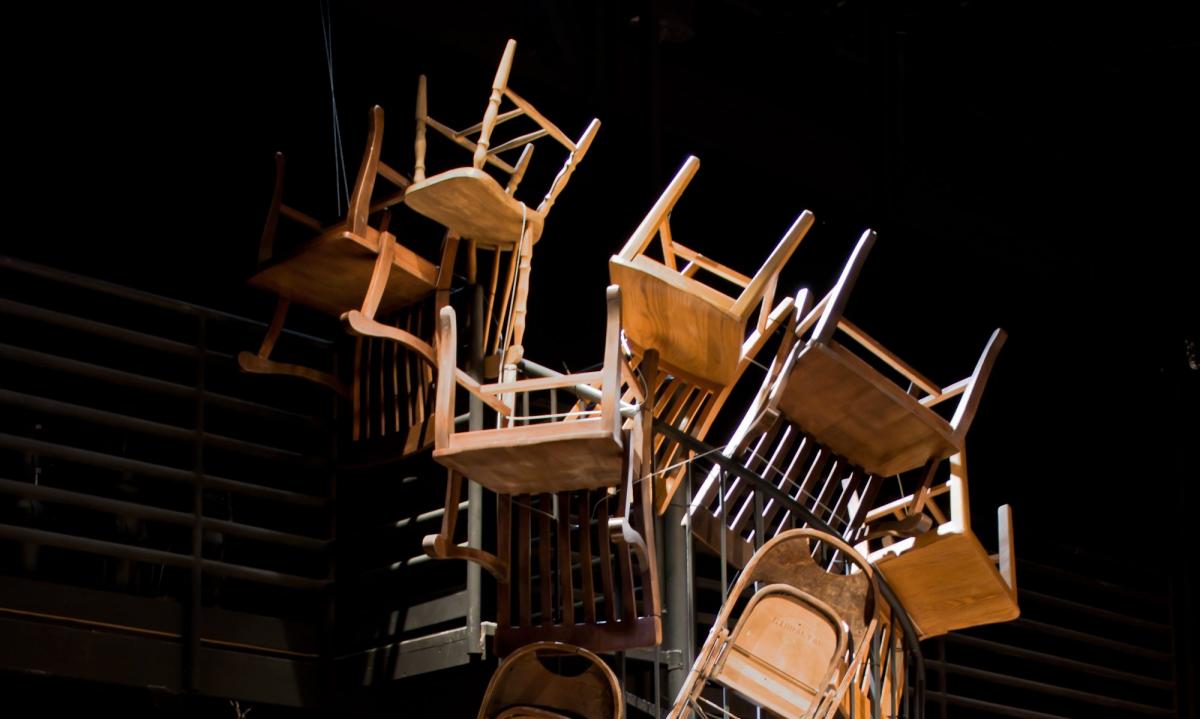Who wrote Shakespeare's poems? Part 3

Accordingly, in a tavern quarrel at Deptford in 1593 was not killed Marlowe, and a vagrant, whose body was given for the mutilated body of a playwright (he was killed with a dagger in the eye). Marlo himself under a false name hastily sailed to France, hiding in Italy, but soon returned to England, settling in seclusion near Scadbury estate of Thomas Walsingham in Kent. There he wrote "Shakespeare's" works, transferring the manuscript to his patron. He sent them first the scribe and then to perform it on stage, the London actor, William Shakespeare the man, completely devoid of imagination, but true and silent.
Hoffman began his research with the counting of phraseological parallelisms in the writings of Marlowe and Shakespeare, and later became acquainted with the writings of the American Professor Thomas Mendenhall, amounting to a "vocabulary profiles" of different writers (with the help of a whole team of women, hardworking millions of words and letters in words). On the basis of these studies, Hoffman announced the complete similarity of the styles of Marlowe and Shakespeare. However, most of these "parallelisms" in fact were not, another part belonged to the commonly used words and structures, and a layer of clear Parallels testified about a well-known fact: young Shakespeare was inspired by the tragedies of Marlowe, learned a lot from the author of "Tamerlane the Great", "the Jew of Malta" and "Doctor Faustus".
In 1956 Hoffman got permission to open the crypt of Walsingham, where he hoped to find the original manuscripts Marlowe Shakespeare, but found only sand. However, since to actually touch the tomb, lying under the floor, Hoffman was banned, he said that his hypothesis not being confirmed, still not fully disproved.
Attempts to detect in the writings of Shakespeare a group of authors made repeatedly, although the reason of some of its members supporters of this view cannot agree. Here are a few examples.
In 1923, an employee of the British administration in India, H. T. S. Forrest published a book entitled "Five authors" of Shakespeare's sonnets, in which he spoke about the poetry tournament hosted by the Earl of Southampton. For the declared count award in the art of writing sonnets, according to Forrester, competed five major Elizabethan poets: Samuel Daniel, Barnaby Barnes, William Warner, John Donne and William Shakespeare. Accordingly, all five and are the authors of the sonnets, which are believed Forrest, since one mistakenly attributed to Shakespeare. Characteristically, one of the company, the author of the epic poem "England" Warner did not write the sonnets, and another, John Donne, resorted to the form of the sonnet only to compose religious verses.

In 1931, Gilbert Slater, economist and historian, published the book "Seven Shakespeares" in which he United the names of almost all the candidates, the most popular inter experimental. According to his version, the writing of Shakespeare's works was Francis bacon, Earls of Oxford, Rutland and Derby, Christopher Marlowe and also sir Walter Raleigh and Mary, Countess of Pembroke (writer and sister of sir Philip Sidney). Women are not often offered and available on the role of Shakespeare, but for the Countess of Pembroke Slater made an exception: in his opinion, a clear presence of female intuition marked "Julius Caesar" and "Antony and Cleopatra", and especially "As you like it" that Mary is not just written, but also brought itself in the image of Rosalind.
Original theory in 1952 offered the British Colonel Montagu Douglas, author of "Lord Oxford and the Shakespeare group". According to his version, the Queen Elizabeth entrusted the Earl of Oxford to lead the propaganda Department, which was supposed to release Patriotic pamphlets and plays. Count adequately completed the assignment, gathering under the name of Shakespeare a syndicate of authors, among whom was a nobleman Francis bacon, the Earl Derby and well-known playwrights: Marlowe, John and Robert Greene. It is interesting that Peru green belongs to one of the main documents confirming the authorship of Shakespeare, in the pamphlet "Grain mind, handsomely paid for by repentance" (1592), written shortly before his death, grin viciously attacked by a certain actor "the crow upstart" decorated "our feathers" who dared to compete with the playwrights of the previous generation.
Deliberately altered by the author of the pamphlet, name ("stunning scene" instead of Shakespeare, "amazing spear") and slightly modified quote from the third part of "Henry VI" leave no doubt about who Greene throws a satirical lightning. However, the version of Lieutenant Colonel Douglas is lame not only in this point: if historical Chronicles of Shakespeare can still (with a very big stretch) be considered suitable for Patriotic education of citizens, then why would the propaganda Department to Tinker with the "Romeo and Juliet", not to mention "Hamlet" and "Othello" absolutely incomprehensible.
